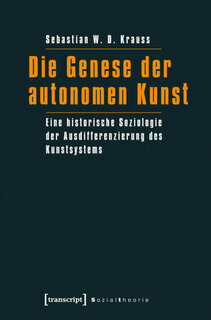Hi, I’m Sebastian. I'm a user researcher with 15 years of experience and a background in sociology. I specialize in comparative user testing and data analysis techniques like disaggregation analysis to uncover user needs, challenges, and opportunities for enhancing product experiences.
Want to learn more about my skills and experience? Check out my LinkedIn profile for a full overview of my background. You can find my academic publications on Google Scholar. I've started repurposing some of my older blog content (ca. 2014) on Medium, as it still seems applicable to today's audience, i.e. about Agile Development, The ‘5-User Rule’ or Why User Research?.
Contact me directly at s at sfahlstromdotcom or use the form at the end of the page.
Curious about my approach to UX research? Keep reading.
My background in sociology allows me to approach user research from a slightly different angle. While often framed as capturing the "voice of the user," user research’s true value lies in its strategic role within the product development lifecycle: Fundamentally, user research is about mitigating risk. In a competitive market, the goal is to deliver exceptional products swiftly, cost-effectively, and with minimal risk.
User research is the compass guiding us towards this target: UX research is, sociologically speaking, a process of observation and interpretation which serves to reduce uncertainty, a primary risk factor within a system. By proactively uncovering user needs and behaviors early in the process, we ensure we are designing the right product for the right people.
We're not just designing for individuals; we're designing for users who exist within a social context. The sociological perspective allows us to design products and services that harmonize with the realities of users' lives.
This broader perspective is critical because it recognizes that users are not just isolated entities interacting with a product; they are individuals whose behaviors are shaped by their environments, communities, and societal structures. It's not just about understanding individual needs or preferences but about grasping how these are influenced by the communities and environments users are part of. This translates to solutions that are more relevant, intuitive, and ultimately more successful.
By acknowledging the sociological aspects of user research, developers can gain valuable insights into what drives or hinders user engagement, helping them to build more inclusive and accessible platforms that reach a broader audience. This approach facilitates a deeper empathy with users, leading to insights that go beyond surface-level preferences. This depth of understanding can inform more nuanced design choices, leading to products that don't just meet functional requirements but also connect with users on a more emotional and psychological level.
I value the practical applications of sociology in user research, but I also find theoretical sociological frameworks like systems theory intellectually stimulating and insightful. Here’s a short introduction:
Systems theory broke away from the traditional sociological view of society as a collection of individuals. Instead, it focuses on communication as the building block. Imagine society as a massive global conversation where ideas, decisions, and actions continuously interact. Very often around specific societal fields: like Economy, Politics, Art. These are systems. Each system has specialized types of communication and functions. Yet, these systems constantly influence and shape one another. A change in economic policy, for instance, will influence communication and decisions in other areas of society.
These systems aren't made by individuals. They emerge, evolve and adapt organically through their communication patterns. It's like how a flock of birds forms complex patterns without a leader. It helps us understand how order emerges from the interactions of many individual parts within a system.
Systems theory helps me think about users within larger systems. It reminds me that their decisions aren't isolated. Understanding the broader social context – culture, technology, market forces – is key to designing products and experiences that truly resonate.
Systems theory is incredibly complex and multifaceted. It takes time to grasp the nuances of how it defines communication, the interconnectedness of social systems, and the self-organizing nature of society. Think of a car engine. You have many individual parts, but it's the way they work together that makes the car move. Systems theory doesn’t analyze the parts but the connections and patterns between them, which can become very complex.
This complexity is something I find fascinating, though, because it reminds me that user behavior can rarely be explained by simple, isolated factors. Systems theory helps me think more holistically about the multiple influences shaping how people interact with products and technology.
While my dissertation focused on the historical transformation of social structure and semantics within the art system, it surprisingly holds valuable insights for the field of user research. Let me explain the connection:
My dissertation explored how the medieval perception and utilization of images transitioned into the modern concept of "artworks." I utilized qualitative research methods to analyze knowledge production within a systems theory framework. This approach allowed me to identify patterns and long-term shifts across different social groups. It involved analyzing historical treatises on art and images, essentially adopting a user-centered approach by examining how viewers interpreted and interacted with these visual elements. This process parallels the core principle of user research, which emphasizes understanding how users perceive and interact with information.
Furthermore, I employed a systems theory framework to analyze the distinct social subsystems influencing the art system, such as law, economy, and science. This framework, which highlights the interconnectedness of seemingly isolated systems, aligns with the user research practice of considering the broader context and how various factors influence user behavior.
While the specific subject matter of my dissertation might differ from user research, the research process itself honed my ability to conduct thorough research, analyze complex information, and draw insightful conclusions. These are essential skills that directly translate to user research methodologies.




